Date: Wednesday, October 6, 2021, 4:00 – 5:00 PM EST
Webinar Description:
The webinar will consist of a diverse group of faculty each sharing a quick positive takeaway from their pandemic teaching experiences. Each speaker will share a “five minute fabulous tip” from their lessons learned teaching during the pandemic that they plan to keep using moving forward, designed to help others who may consider integrating it into their teaching practices. After each speaker, there will be a short discussion/Q &A on each tip.
Learning Objectives:
Click Here to Watch Webinar Replay
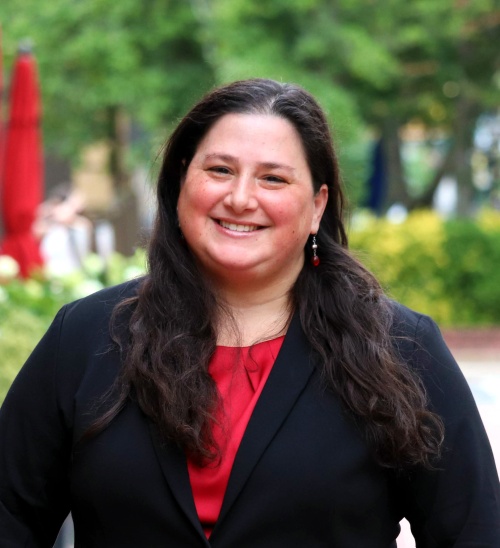
Marcy Karin, J.D., Jack and Lovell Olender Professor of Law & Director of the Legislation Clinic, University of the District of Columbia David A. Clarke School of Law
Marcy Karin teaches Employment Law, Employment Discrimination, Gender/Sexual Orientation Under the Law, Disability Law, and Service Learning in addition to directing the Legislation/Civil Rights Clinic at the University of the District of Columbia David A. Clarke School of Law. Through the Clinic, she teaches law students how to be effective, ethical, and reflective legislative lawyers. This is accomplished by seminar instruction and supervising student work on systemic reform projects for non-profit organizations that are working to lift vulnerable populations out of poverty via economic security, workplace protections, and access to other civil rights. Professor Karin writes about clinical pedagogy and the development of thoughtful public policy at the intersections of workplace, gender, menstrual, disability, and racial justice for low-wage workers, menstruators, military families, and others. Prior to joining UDC Law, Professor Karin spent seven years teaching courses on legislation and employment law as a Clinical Professor of Law and Director of the Work-Life Law and Policy Clinic at the Arizona State University Sandra Day O’Connor College of Law. She also served as Legislative Counsel for Workplace Flexibility 2010 and as an Adjunct Professor of Law, Teaching Fellow, and Supervising Attorney at Georgetown University Law Center’s Federal Legislation and Administrative Clinic and as an associate at Arent Fox PLLC on a range of employment, litigation, and government relations matters.
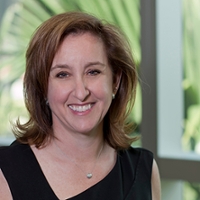
Debra Moss Vollweiler, J.D., Associate Dean for Academic Affairs and Professor of Law, Nova Southeastern University Shepard Broad College of Law
Debra Moss Vollweiler is the Associate Dean for Academic Affairs and a tenured Professor of Law at Nova Southeastern University, Shepard Broad College of Law, in Ft. Lauderdale, FL. She is a graduate of Boston College Law School and Tufts University and began her work in legal education by establishing the Public Interest Law Center at the NSU College of Law. Her teaching focus is on Contracts, UCC: Secured Transactions, and UCC: Sales, and Corporations. She has published more than thirty works on professionalism, teaching, learning, and attorney discipline. Her latest works, entitled,
If you Can’t Beat ‘Em, Join ‘Em (Virtually): Institutionally Managing Law Students as Consumers in a COVID World and If you Can’t Beat ‘Em, Join ‘Em: Institutionally Managing Law Students as Consumers, are published in the Pace Law Review. She is the co-author of “Legal Education at a Crossroads,” a book examining curricular change in law schools nationwide and advocating for data based curriculum development.
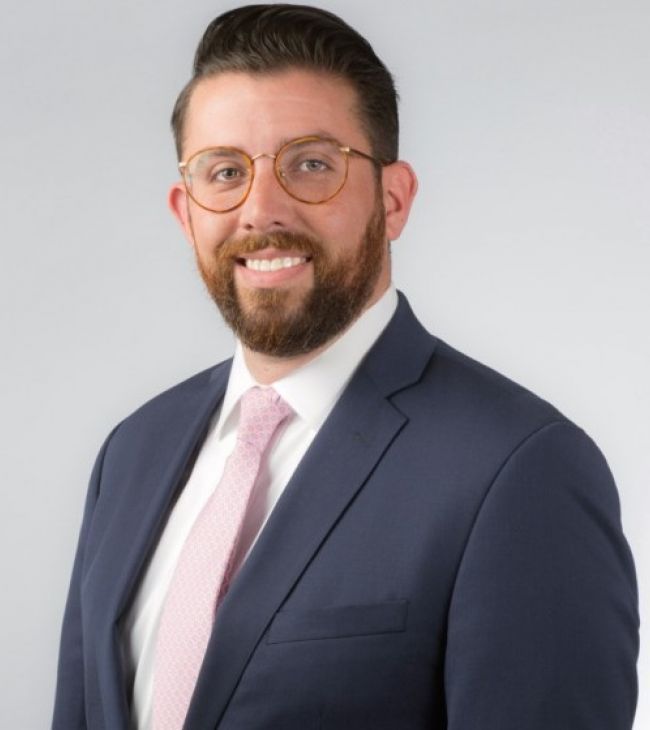
Ron S. Hochbaum, J.D., Assistant Clinical Professor of Law, University of the Pacific, McGeorge School of Law
Ron Hochbaum joined the faculty at the University of the Pacific McGeorge School of Law in 2021. He directs the Law School’s Homeless Advocacy Clinic and teaches Poverty Law. Before joining the faculty at McGeorge, Professor Hochbaum was an Assistant Professor of Law at the University of the District of Columbia David A. Clarke School of Law. At UDC, Professor Hochbaum directed its Housing and Consumer Law Clinic in which students represented housed and unhoused District residents in efforts to access and maintain healthy, safe, and affordable housing. He also served as a clinical teaching fellow at both Loyola University Chicago and Cornell University. In Loyola’s Health Justice Project, Professor Hochbaum taught lawyering skills to students in the context of a medical-legal partnership with Erie Family Health Center. At Loyola, he also taught Access to Health Care, a seminar exploring the legal, political, social and environmental issues surrounding health equity in the United States. As a Clinical Teaching Fellow in the Farmworker Legal Assistance Clinic at Cornell Law School, Professor Hochbaum developed a unique experiential opportunity for students to conduct legal outreach to farm workers in California’s Central Valley. As part of the program, he established a partnership between Cornell Law School and the United Farm Workers.
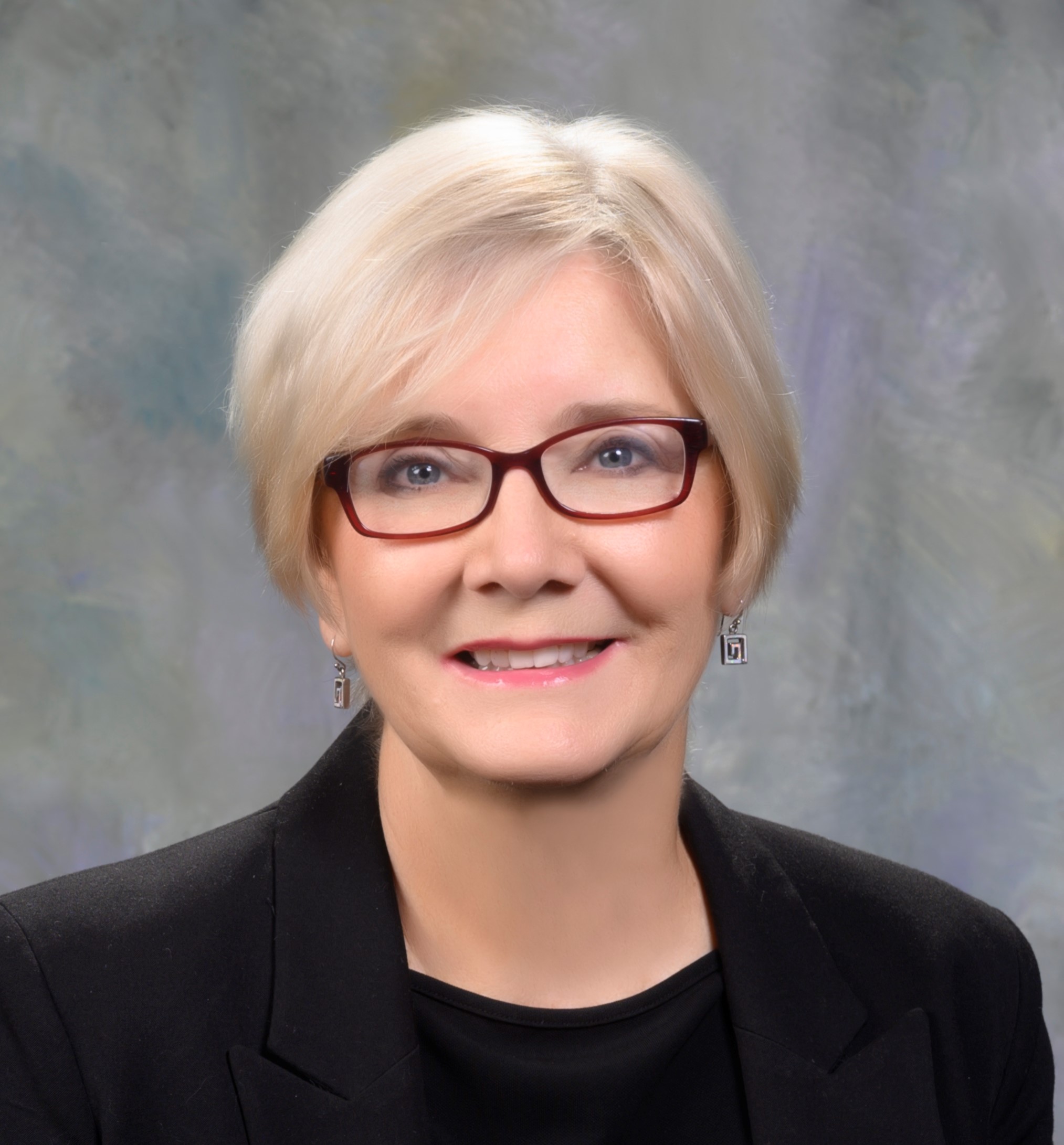
Delores Mayer, PhD., J.D., Legal Writing Specialist, Wayne State University Law School
Delores Mayer is a graduate of the University of Notre Dame School of Law where she was staff member of the Journal of College and University Law. She also holds a Ph.D. in Rhetorical and Composition Theory from Wayne State University as well a master’s in English Literature from Oakland University and a bachelor’s in English and Journalism from Wayne State University. In addition to serving as Wayne Law’s Legal Writing Specialist, Mayer teaches Legal Research and Writing and Employment Law.
Mayer has more than 15 years of litigation experience representing business owners and small corporations in Michigan and New Mexico on an array of matters including contracts, labor and employment, trademark infringement and franchise disputes. She also has nearly five years of experience as a prosecutor. Prior to entering the practice of law, she was an associate professor of English and director of the Undergraduate Writing Program at Northern Arizona University. She was also the assistant director of Freshman English at the University of Michigan.
Mayer has been a very active member of the Oakland County Bar Association (OCBA). She has served as the chair of the OCBA Employment Law Committee and is a frequent contributor of articles to the OCBA Laches magazine on employment law topics such as the “Intersection of the FMLA and ADA” and “Pros and Cons: Hiring Ex-Offenders.” She also writes a monthly column called “Legally Write” on topics such as “Pause and Effect: The Abused and Misused Comma.”

Mary Ann Robinson, J.D., Professor of Law, Villanova University Charles Widger School of Law
Mary Ann Robinson is a Professor of Law who teaches the Transactional Writing III class. In addition, Professor Robinson directs the 1L Business and Financial Literacy Module. She received a B.A. from the University of Pennsylvania and a J.D. from Villanova University School of Law, where she was an editor of the Villanova Law Review. Before joining Villanova’s faculty, Professor Robinson taught at Widener University School of Law, practiced with Pepper Hamilton LLP in Philadelphia and Berwyn, Pennsylvania, and was also employed at ALI-ABA (now ALI CLE) as Editor of The Audio Estate Planner® magazine. Professor Robinson has a particular interest in professionalism education and has helped develop a series of three free videos for teaching law students about professionalism in law school and law practice. She also co-created six additional professionalism videos that were produced by Wolters Kluwer and are available on YouTube for law professors to use in their teaching. Professor Robinson has been a speaker at numerous regional and national conferences.
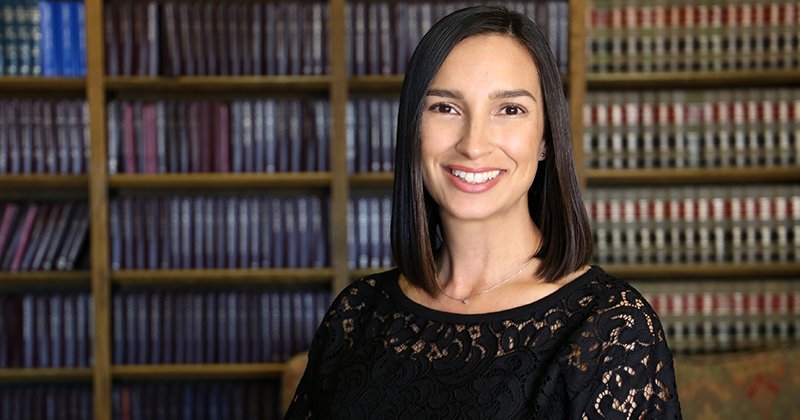
Natalie Rodriguez, J.D., Assistant Dean of Academic Success and Associate Professor of Law, Southwestern Law School
Assistant Dean Rodriguez joined the Southwestern faculty as the Academic Success and Bar-Related Programs Fellow in 2012. Soon after she became the Co-director of Academic Success and Bar-Related Programs and in 2017, she became Assistant Dean of Academic Success.
Dean Rodriguez has designed and taught a number of programs and courses to support students in achieving academic success, both in law school and on the bar exam. Dean Rodriguez is particularly passionate about helping students harness the power of cognitive learning theory to maximize the results from effective study habits. She also believes that the most successful students are those who are able to make the connection between academic and professional competencies early on in their academic journey. Her course design model, which uses a number of cognitive learning principles, has been used by other law schools seeking to create or enhance academic or bar support programs.
Dean Rodriguez has served on the executive board of the American Association of Law Schools (AALS), Academic Support Section and on various committees for the Association of Academic Support Educators (AASE), including AASE’s Bar Advocacy Committee. She has played an active role in many of the recent studies regarding the bar exam including the California State Bar studies as an Advisory Group Member for the “Performance Changes on the California Bar Examination” report as well as the national study “Building a Better Bar: Capturing Minimum Competence” by the Institute for the Advancement of the American Legal System (IAALS). Her legal practice experience is in Estate Planning and Probate.
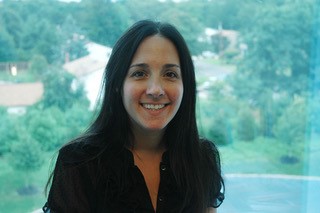
Michelle Zakarin, J.D., Associate Professor of Legal Process, Touro College, Jacob D. Fuchsberg Law Center